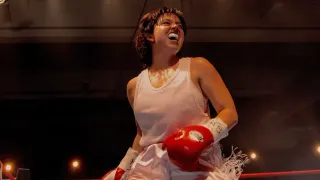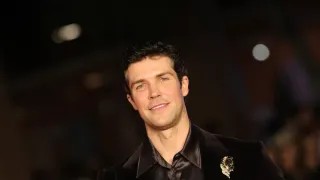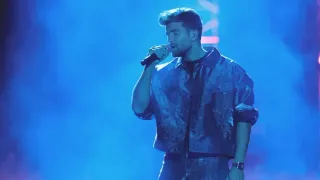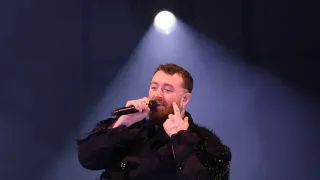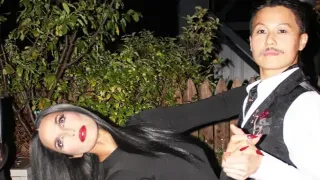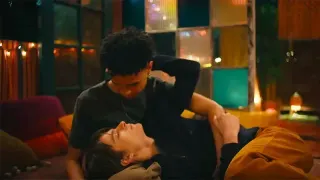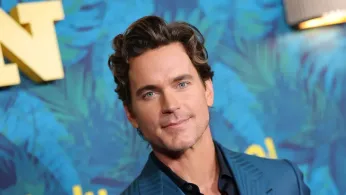
5 hours ago
Matt Bomer, Boarding School Mystique, and a Queer Reunion: Hulu’s 'Foster Dade' Sets the Stage
READ TIME: 4 MIN.
If you’ve spent the past year swooning over Matt Bomer’s performance in Fellow Travelers, you’re not alone. The series, celebrated for its nuanced portrayal of queer love across decades, became a cultural touchstone for LGBTQ+ viewers hungry for authentic representation and meaningful storytelling. Now, Bomer is stepping back into the creative orbit of director Daniel Minahan and executive producer Robbie Rogers—both instrumental in making Fellow Travelers a critical and queer community success—for Hulu’s new pilot Foster Dade. The reunion isn’t just a behind-the-scenes lovefest; it signals a commitment to the kind of layered, emotionally intelligent drama queer audiences crave .
Foster Dade isn’t just another boarding school drama—it’s adapted from Nash Jenkins’ debut novel Foster Dade Explores the Cosmos, and centers on a mystery that unfolds across 2008 and today. At its heart: an expelled student, a school cloaked in secrets, and Bomer’s character—a teacher whose allure is as enigmatic as it is irresistible. For queer audiences, the choice to cast Bomer, whose work continually challenges the boundaries of masculinity and vulnerability, feels like an intentional nod to the transformative power of visibility on screen.
The creative team—Greg Berlanti and Bash Doran penning the pilot, Minahan directing, Rogers producing—reads like a wish list for anyone invested in queer media. Berlanti’s legacy as a champion of LGBTQ+ stories in television is well documented, from Dawson’s Creek to Love, Simon, while Rogers, a former professional soccer player and out gay man, has become a force for authentic queer narratives behind the camera .
Boarding school stories have long been a playground for queer subtext: isolation, chosen family, the tension between outward conformity and inner desire. Foster Dade looks poised to mine those themes, bringing them to the surface in ways that speak directly to the lived experiences of LGBTQ+ people—especially those who’ve navigated institutions built on tradition and secrecy. The novel’s dual timeline structure, spanning 2008 and the present, offers a mirror to the shifting landscape of queer acceptance, highlighting how much has changed—and how much remains unresolved .
With Bomer as the “handsome, magnetic teacher,” the show invites questions about mentorship, longing, and the complicated power dynamics that often define adolescence. It’s a setting rife with possibility: the chance to explore not only queer desire, but also the ways in which LGBTQ+ youth find—and sometimes lose—their sense of self in environments that promise both sanctuary and scrutiny.
Matt Bomer’s star power isn’t just about his jawline (though, let’s be real, it doesn’t hurt). His career has been a masterclass in choosing roles that matter to queer audiences—from the heartbreak of The Normal Heart to the slow-burn romance of Fellow Travelers. In Foster Dade, he’ll play a character whose allure isn’t just about good looks—it’s about the gravity he exerts on everyone around him, a dynamic that promises to be both seductive and unsettling.
For LGBTQ+ viewers, seeing Bomer in a role that navigates the complexities of attraction, authority, and vulnerability isn’t just entertainment; it’s validation. Queer teachers, mentors, and authority figures have historically been erased or villainized in media. Foster Dade’s choice to center Bomer’s character—and to do so with a creative team committed to authenticity—marks a shift toward richer, more honest depictions.
The timing of Foster Dade’s development is no accident. As anti-LGBTQ+ rhetoric continues to ripple through political discourse and educational spaces, stories about queer youth, teachers, and the institutions that shape them are urgently relevant. The boarding school backdrop allows the series to interrogate questions of belonging, shame, and liberation in ways that echo beyond the fictional walls of the campus.
Moreover, the involvement of Robbie Rogers as executive producer—under a new producing deal with Berlanti Productions—signals that the series is part of a larger wave of queer storytelling coming to mainstream platforms. Rogers’ journey from professional athlete to trailblazing producer is its own testament to the power of coming out and claiming space, both on the field and in the writers’ room .
Should Foster Dade move beyond pilot to series, it stands to join the ranks of shows like Heartstopper, Euphoria, and Sex Education—works that put queer stories front and center, refusing to relegate them to subtext or stereotype. The series’ dual timeline is particularly promising, creating space to reflect on the changes that a decade and a half have wrought in both policy and culture.
For older LGBTQ+ viewers, the 2008 setting may evoke memories of Proposition 8 protests, the rise of social media activism, and the bittersweet beginnings of marriage equality campaigns. For younger audiences, the present-day storyline offers recognition and resonance, capturing the nuances of queer life in a world that is both more visible and more vulnerable than ever.
As the cameras prepare to roll, queer audiences have reason to hope for a show that doesn’t just gesture at inclusivity, but lives it—on screen, in the writers’ room, and behind the lens. Foster Dade’s pedigree suggests a project that will honor the messiness, magic, and meaning of queer coming-of-age, without sacrificing complexity for easy answers.
If the pilot delivers, it could offer a new blueprint for how mainstream media tackles queer narratives: with care, with courage, and with a commitment to showing that our stories are as compelling and complicated as anyone else’s. Until then, we’ll be eagerly watching—and maybe dreaming of a boarding school mystery that finally puts queer longing at the center stage.
